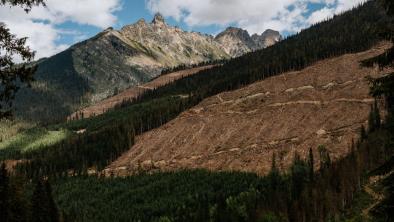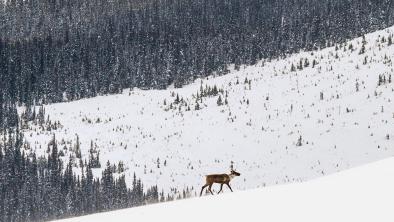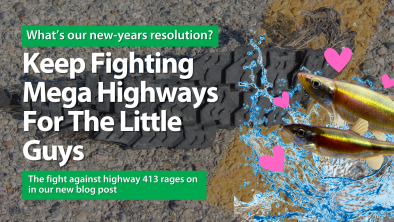Comment: One year later, nothing has improved for wild salmon
Thursday, October 31, 2013

Victoria Times Colonist
By TORRANCE COSTE
October 31, 2013
British Columbia’s wild salmon are still waiting.
One year ago today, the highly anticipated final report of the Cohen Commission was released. The commission, which cost $26.4 million and took more than two years, was struck to investigate the decline of Fraser River sockeye salmon stocks. Its findings were expected to provide better understanding of the issues that affect migrating salmon and provide recommendations on how to effectively manage them.
The report, entitled The Uncertain Future of Fraser River Sockeye, painted a grim picture for B.C.’s wild salmon and called on the federal government to fund and publish a “wild salmon policy implementation plan.”
Since then, no plan has been published, and no other action has been taken to protect and conserve wild salmon on Canada’s Pacific coast. At best, this is a horrendous waste of taxpayer dollars, and at worst, it’s a total abandonment of B.C.’s most iconic species — and the ecosystems, cultures and economies that depend on it.
The federal government’s inaction on Cohen was preceded by the passing of Budget Bill C-38, which gutted fish-habitat protection laws. The bill eliminated one-third of Fisheries and Oceans Canada’s habitat staff in B.C. It dropped the law that required major projects to undergo both a federal and provincial environmental assessment, paving the way for pipelines, coal mines and other industrial projects that jeopardize habitats for salmon and other species.
Bill C-38 is one of the biggest regressions in environmental protection in Canadian history.
All this has come at a time when Pacific salmon stocks are not nearly as resilient as they have been in the past. With most runs depleted and some gone altogether, salmon are poorly suited to withstand the institutionalized neglect they now face from federal lawmakers.
As population and development have exploded in B.C. over the past century, a number of factors have affected salmon.
Clearcut logging has decimated watersheds up and down the coast. This and other industrial activities, including mining, urban sprawl and some hydroelectric projects, have had a serious impact on the rivers, estuaries and marine environments upon which salmon depend.
Compounding all of this is climate change, a catastrophic shift to which salmon are extremely sensitive, and which our federal government has refused to take seriously, a point of national embarrassment for Canadians.
Finally, salmon farms, which feature open-net pens that expose migrating salmon to such hazards as fecal waste and viral outbreaks, have further impacted wild salmon stocks.
On the matter of the salmon farming industry, our provincial government has also displayed shocking irresponsibility when it comes to protecting wild salmon. Internal documents I received through a freedom-of-information request last spring show a disturbing relationship between the Ministry of Agriculture and salmon-farming corporations. Provincial aquaculture scientists — whose job it is to manage and protect the marine environment and its resources — sought direction from corporations when releasing information about disease outbreaks.
In one instance, a ministry spokesperson asked if Alberta was an “important market” for farmed salmon before doing an interview on disease outbreaks with an Edmonton radio station.
In May 2012, the B.C. minister of agriculture attempted (and failed, thankfully) to pass a bill that would have made it illegal for media or the public to report on disease outbreaks on salmon farms.
This prioritization of business interests over the health of our marine ecosystems is a heartbreaking example of the environmental recklessness that is entrenched in our governments.
We deserve better than this. A year since the Cohen Commission was released, it’s time we start demanding action to protect wild salmon.
At both the provincial and federal level, our governments are laser-focused on one thing: the exploitation and export of fossil fuels. The fallacy of infinite growth based on finite resources seems not to have dawned on them. Our leaders need to ask themselves where the west coast of Canada would be without salmon. What will happen if they disappear?
There are no coastal species as important in this province as wild salmon. Complex food chains, indigenous cultures and local economies have evolved around them. Their importance is well understood and cannot be understated.
Launching the Cohen Commission was a positive step by the federal government, but it wasn’t acted upon; its recommendations have been systematically ignored.
On the one-year anniversary of the Cohen Commission, we should be ashamed and outraged. Wild salmon are the lifeblood of this coast — they deserve action and protection, not empty gestures and political theatre.
Torrance Coste is Vancouver Island campaigner for the Wilderness Committee.


